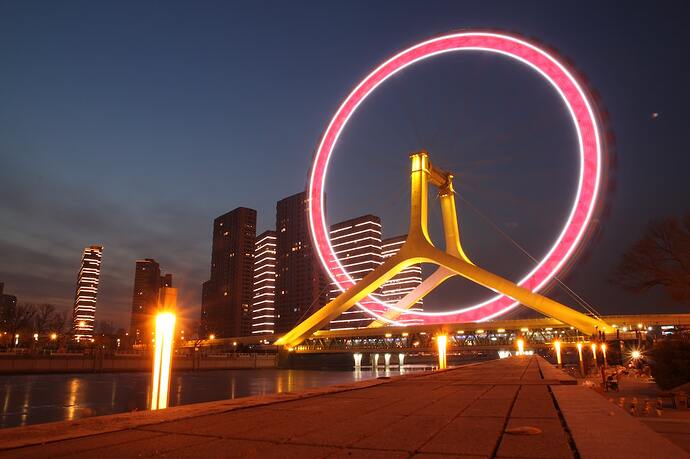Tianjin (pronounced ‘tee-en-jin’), is a sprawling metropolis in northern China, located at the mouth of the Haihe River where it enters the Bohai Gulf. The city has a population of over 15 million residents and serves as the gateway to Beijing, located 120 kilometers to the north-west.
History:
Tianjin has a rich history dating back over 2,000 years. During the Sui Dynasty, it was known as Zhigu, and during the Qing Dynasty, it was an important trading center under the name of Tianjin. In 1860, during the second Opium War, the city was occupied by British and French forces. It was later returned to Chinese control and emerged as a major center of commerce and transportation.
Geography:
Tianjin is located on the east coast of China, covering an area of 12,938 square kilometers (roughly the size of Jamaica). It is situated at the eastern end of the North China Plain, an alluvial plain that stretches from the Yellow River in the north to the Yangtze River in the south. The terrain is primarily flat, with an average elevation of 3 meters above sea level.
Culture:
As a gateway to Beijing, Tianjin has developed its own unique culture and cuisine. The local cuisine is renowned for its steamed buns (baozi), dumplings (jiaozi), and its sweet and sour dishes. The city is also known for its traditional music, called Jingju, or Peking Opera, which dates back to the 18th century.
Attractions:
Tianjin has a number of attractions for visitors to explore. The city’s historic district, known as the Five Avenues, features a collection of European-style buildings, reflecting the city’s colonial past. Other notable landmarks include the Tianjin Eye (a giant Ferris wheel overlooking the river), the Tianjin Museum, and the Shuishang Park.
Transportation:
Tianjin is a major transportation hub, with an extensive network of highways, railways, and airports. The Tianjin Binhai International Airport is located 13km east of the city center and serves as a hub for both domestic and international flights. The city is also connected to Beijing via high-speed rail, with trains departing from Tianjin Railway Station to Beijing South Station every few minutes.
Economy:
Tianjin is one of the fastest-growing cities in China, with a robust economy that is driven by manufacturing, shipping, and finance. The city is home to a number of multinational companies, including Motorola, Toyota, and Samsung. The Port of Tianjin, located on the Haihe River, is one of the busiest ports in the world, handling over 14 million containers annually.
Education:
Tianjin has a number of prestigious universities, including Nankai University, Tianjin University, and the Tianjin Medical University. The city’s educational system is highly regarded, with a focus on science and technology. The city is also home to a number of research institutes, including the Tianjin Institute of Industrial Biotechnology and the Tianjin Institute of Metrological Testing Technology.
Overall, Tianjin is a bustling metropolis with a rich history and vibrant culture. Its strategic location and robust economy make it a key player in China’s rise as a global economic superpower. Whether you are interested in exploring its historic landmarks or sampling its culinary delights, Tianjin has something for everyone.
Disclaimer
6do Encyclopedia represents the inaugural AI-driven knowledge repository, and we cordially invite all community users to collaborate and contribute to the enhancement of its accuracy and completeness.
Should you identify any inaccuracies or discrepancies, we respectfully request that you promptly bring these to our attention. Furthermore, you are encouraged to engage in dialogue with the 6do AI chatbot for clarifications.
Please be advised that when utilizing the resources provided by 6do Encyclopedia, users must exercise due care and diligence with respect to the information contained therein. We expressly disclaim any and all legal liabilities arising from the use of such content.






